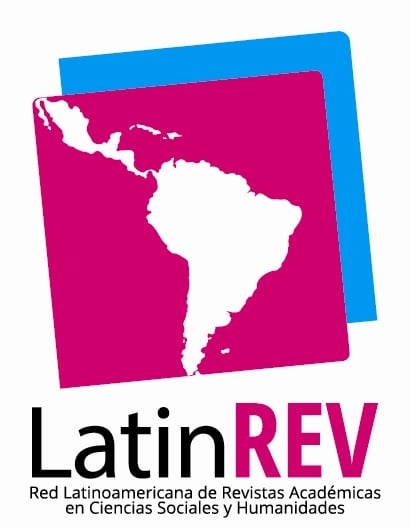Identification of novel point mutations in c-kit gene from Leukemia cases: a study from Lucknow, Uttar Pradesh, India
Identificación de nuevas mutaciones puntuales en el gen c-kit en casos de Leucemia: un estudio realizado en Lucknow, Uttar Pradesh, India
DOI:
https://doi.org/10.54167/tch.v6i1.685Palabras clave:
c-kit, exon-8 and -11, Leukemia, mutation, SSCP-PAGEResumen
The c-kit gene is a receptor tyrosine kinase (RTK) class III that is expressed in early hematopoietic progenitor cells. Aberrantly activated RTK and related downstream signaling partners have been reported as key elements in the molecular pathogenesis of several malignancies. Within the c-kit gene exon-11 is the most frequent site for mutations in different kinds of tumours. Mutations in c-kit gene may enhance or interfere with the ability of c-kit receptor to initiate the intracellular pathways resulting in cell proliferation. Therefore, we aimed to screen the mutations in c-kit gene at exon-8 and -11 in malignant Leukemias. Ninety Leukemia cases were studied and analyzed by mutation- specific PCR-SSCP followed by DNA sequencing. Twenty point mutations were detected in eight AML (acute myeloid Leukemia) cases within exon-11 which includes Tyr568Ser, Ile571Thr, Thr574Pro, Gln575His, Tyr578Pro, Asp579His, His580Gln, Arg586Thr, Asn587Asp and Arg588Met. The substitutions Lys550Asn, Ile571Leu and Trp582Ser were observed in two independent cases and four novel point mutations at codons Ile563Lys, Val569Leu, Tyr570Ser, and Pro577Ser. Further, six point mutations were detected at exon-8 in six cases (four AML and two CML cases), comprising three novel mutations Asn423Asp, Gln448Thr, and Gln448His. The point mutations Thr417Asp, Tyr418Phe, and Leu421His were observed, but were detected only in three cases. These observations suggest that mutations in c-kit gene might represent a useful molecular genetic marker in Leukemia and incidence of mutation at exon- 8 and -11 is high and might be involve in pathogenesis of AML.
Resumen
El gen c-kit, que codifica para un receptor tirosina quinasa (RTK) de clase III, se expresa en las primeras células progenitoras hematopoyéticas. La activación de este RTK y su vía de señalización se encuentran involucradas en la patogénesis molecular de varias enfermedades. La mutación del gen c-kit en el exón 11 es una de las mutaciones más frecuentemente reportadas en diferente tipos de tumores. Mutaciones en c-kit podrían incrementar o interferir con la habilidad del receptor c-kit para iniciar la activación de cascadas de señalización intracelulares responsables en la proliferación celular. Por estas razones, estudiamos las mutaciones del gen c-kit en el exon 8 y 11 en casos con Leucemias. Noventa casos de Leucemia en la India fueron estudiados mediante PCR SSCP, seguida por secuenciación de DNA. Veinte mutaciones puntuales fueron detectadas en el exon 11 en tan solo ocho de los casos con AML (leucemia mieloide aguda), entre las que encontraron las mutaciones Tyr568Ser, Ile571Thr, Thr574Pro, Gln575His, Tyr578Pro, Asp579His, His580Gln, Arg586Thr, Asn587Asp y Arg588Met. Las sustituciones Lys550Asn, Ile571Leu y Trp582Ser fueron observadas en tan solo dos casos. Además, cuatro nuevas mutaciones para los codones Ile563Lys, Val569Leu, Tyr570Ser, y Pro577Ser se observaron en este estudio. En el exon 8, seis mutaciones puntuales fueron observadas y en seis de los casos (cuatro en AML y dos en CML) encontramos tres nuevas mutaciones Asn423Asp, Gln448Thr y Gln448His. Sin embargo, las mutaciones puntuales Thr417Asp, Tyr418Phe y Leu421His fueron observadas en varias ocasiones, pero en tan solo tres de los casos estudiados. Estas observaciones sugieren que las mutaciones en c-kit podrían representar un marcador genético para Leucemia. La incidencia en la mutación del exon 8 y 11 es elevada y podría estar relacionada con la patogénesis de la AML.
Palabras clave: c-kit, exones 8 y 11, Leucemia, mutación, SSCP PAGE.
Descargas
Citas
Abu-Duhier, F.M.A.C. Goodeve, G.A. Wilson, R.S. Care, I.R. Peake & J.T. Reilly. 2001. Identification of novel FLT-3 Asp835 mutations in adult acute myeloid leukaemia. British Journal of Haematology 113(4):983-988. https://doi.org/10.1046/j.1365-2141.2001.02850.x
Antonescu, C.R., G. Sommer, L. Sarran, S.J. Tschernyavsky, E. Riedel, J.M. Woodruff, M. Robson, R. Maki, M.F. Brennan, M. Ladanyi, R.P. DeMatteo & P. Besmer. 2003. Association of KIT exon 9 mutations with nongastric primary site and aggressive behavior: kit mutation analysis and clinical correlates of 120 gastrointestinal stromal tumors. Clinical Cancer Research 9(9):3329–3337.
Bennett, J.M., D. Catovsky, M.T. Daniel, G. Flandrin, D.A. Galton, H.R. Gralnick & C. Sultan. 1976. Proposal for the classification of the acute leukaemias. French American British (FAB) co-operative group. British Journal of Haematology 33(4):451- 458. https://doi.org/10.1111/j.1365-2141.1976.tb03563.x
Choe, Y.S., J.G. Kim, S.K. Sohn, D.H. Kim, J.H. Baek, K.B. Lee, Y.R. Do, K.Y. Kwon, H.S. Song, M.H. Lee & T.I. Park. 2006. c-kit Expression and mutations inperipheral T cell lymphomas, except for extra-nodal NK/T cell lymphomas. Leukemia & Lymphoma 47(2):267-270. https://doi.org/10.1080/10428190500281680
Cole, S. R., G.W. Aylett, N.L. Harvey, A.C. Cambareri & L.K. Ashman. 1996. Increased expression of c-Kit or its ligand Steel Factor is not a common feature of adult acute myeloid leukaemia. Leukemia 10(2):288-296.
Gao, X.N. J. Lin, Y.H. Li, L. Gao, X.R. Wang, W. Wang, H.Y. Kang, G.T. Yan, L.L. Wang & L. Yu. 2011. MicroRNA-193a represses c-kit expression and functions as a methylation- silenced tumor suppressor in acute myeloid leukemia. Oncogene 30(31):3416-3428. https://doi.org/10.1038/onc.2011.62
Gari, M., A. Goodeve, G. Wilson, P. Winship, S. Langabeer, D. Linch, E. Vandenberghe, I. Peake, & J. Reilly. 1999. C-kit proto-oncogene exon 8 in-frame deletion plus insertion mutations in acute myeloid leukaemia. British Journal of Haematology 105(4):894–900. https://doi.org/10.1046/j.1365-2141.1999.01449.x
Higuchi, M., D. O’Brien, P. Kumaravelu, N. Lenny, E.J. Teoh & J.R. Downing. 2002. Expression of a conditional AML1-ETO oncogene bypasses embryonic lethality and establishes a murine model of human t(8;21) acute myeloid leukemia. Cancer Cell 1(1):63-74. https://doi.org/10.1016/s1535-6108(02)00016-8
Hou, Y.Y., Y.S. Tan, M.H. Sun, Y.K. Wei, J.F. Xu, S.H. Lu, S.J. A- Ke-Su, Y.N. Zhou, F. Gao, A.H. Zheng, T.M. Zhang, W.Z. Hou, J. Wang, X. Du & X.Z. Zhu. 2004. C-kit gene mutation in human gastrointestinal stromal tumors. World Journal of Gastroenterology 10(9):1310-1314. https://doi.org/10.3748%2Fwjg.v10.i9.1310
Ihle, J.N., B.A. Witthuhn, F.W. Quelle, K. Yamamoto & O. Silvennoinen. 1995. Signaling through the hematopoietic cytokine receptors. Annual Review of Immunology 13:369-398. https://doi.org/10.1146/annurev.iy.13.040195.002101
Kim, T.W., H. Lee, Y.K. Kang, M.S. Choe, M.H. Ryu, H.M. Chang, J.S. Kim, J.H. Yook, B.S. Kim & J.S. Lee. 2004. Prognostic Significance of c-kit Mutation in Localized Gastrointestinal Stromal Tumors. Clinical Cancer Research 10(9):3076–3081. https://doi.org/10.1158/1078-0432.ccr-03-0581
Kohl, T.M., S. Schnittger, J.W. Ellwart, W. Hiddemann & K. Spiekermann. 2005. KIT exon 8 mutations associated with core-binding factor (CBF)–acute myeloid leukemia (AML) cause hyperactivation of the receptor in response to stem cell factor. Blood 105(8):3319-3321. https://doi.org/10.1182/blood-2004-06-2068
Lasota, J., A. Wozniak, M. Sarlomo-Rikala, J. Rys, R. Kordek, A. Nassar, L.H. Sobin & M. Miettinen. 2000. Mutations in exons 9 and 13 of KIT gene are rare events in gastrointestinal stromal tumors. A study of 200 cases. The American Journal of Pathology 157(4): 1091-1095. https://doi.org/10.1016/s0002-9440(10)64623-8
Lasota, J., C. L. Corless, M.C. Heinrich, M. Debiec-Rychter, R. Sciot, E. Wardelmann, S. Merkelbach-Bruse, H. U. Schildhaus, S. E. Steigen, J. Stachura, A. Wozniak, C. Antonescu, O. Daum, J. Martin, J.G. Del Muro & M. Miettinen. 2008. Clinicopathologic profile of gastrointestinal stromal tumors (GISTs) with primary KIT exon 13 or exon 17 mutations: a multicenter study on 54 cases. Modern Pathology 21(4):476–484. https://doi.org/10.1038/modpathol.2008.2
Lasota, J., M. Jasinski, M. Sarlomo-Rikala, and M. Miettinen. 1999. Mutations in exon 11 of c-Kit occur preferentially in malignant versus benign gastrointestinal stromal tumors and do not occur in leiomyomas or leiomyosarcomas. The American Journal of Pathology 154(1):53–60. https://doi.org/10.1016/s0002-9440(10)65250-9
Lux, M.L., B.P. Rubin, T.L. Biase, C.J. Chen, T. Maclure, G. Demetri, S. Xiao, S. Singer, C.D. Fletcher & J.A. Fletcher. 2000. KIT extracellular and kinase domain mutations in gastrointestinal stromal tumors. The American Journal of Pathology 156(3):791–795. https://doi.org/10.1016/s0002-9440(10)64946-2
Marcucci, G., T. Haferlach & H. Döhner. 2011. Molecular genetics of adult acute myeloid leukemia: prognostic and therapeutic implications. Journal of Clinical Oncology 29(5):475-86. https://doi.org/10.1200/jco.2010.30.2554
Martín-Broto, J. L. Rubio, R. Alemany & J.A. López-Guerrero. 2010. Clinical implications of KIT and PDGFRA genotyping in GIST. Clinical and Translational Oncology 12(10):670-676. https://doi.org/10.1007/s12094-010-0576-7
Matthews, W., C.T. Jordan, G.W. Wiegand, D. Pardoll & I.R. Lemischka. 1991. A receptor tyrosine kinase specific to hematopoietic stem and progenitor cell-enriched populations. Cell 65(7):1143-1152. https://doi.org/10.1016/0092-8674(91)90010-v
Miranda, M., K.D. Dionne, T. Sorkina & A. Sorkin. 2007. Three ubiquitin conjugation sites in the amino terminus of the dopamine transporter mediate protein kinase C-dependent endocytosis of the transporter. Molecular Biology of the Cell 18(1):313-323. https://doi.org/10.1091/mbc.e06-08-0704
Mol, C.D. K.B. Lim, V. Sridhar, H. Zou, E.Y. Chien, B.C. Sang, J. Nowakowski, D.B. Kassel, C.N. Cronin & D.E. McRee. 2003. Structure of a c-kit product complex reveals the basis for kinase transactivation. Journal of Biological Chemistry 278(34):31461-31464. https://doi.org/10.1074/jbc.c300186200
Moskaluk, C.A. & S.E. Kern. 1997. Microdissection and Polymerase Chain Reaction Amplification of Genomic DNA from Histological Tissue Sections. The American Journal of Pathology 150(5):1547-1552. https://tinyurl.com/2nm27epd
Orita, M., H. Iwahana, H. Kanazawa, K. Hayashi & T. Sekiya. 1989. Detection of polymorphisms of human DNA by gel electrophoresis as single-strand conformation polymorphism. Proceedings of the National Academy of Sciences 86(8):2766-2770. https://doi.org/10.1073/pnas.86.8.2766
Piloto, O., M. Wright, P. Brown, K. T. Kim, M. Levis & D. Small. 2007. Prolonged exposure to FLT3 inhibitors leads to resistance via activation of parallel signaling pathways. Blood 109(4):1643-1652. https://doi.org/10.1182/blood-2006-05-023804
Price, D.J., B. Rivnay, Y. Fu, S. Jiang, S. Avraham & H.Avraham. 1997. Direct association of Csk homologous kinase (CHK) with the diphosphorylated site Tyr568/570 of the activated c-KIT in megakaryocytes. Journal of Biological Chemistry 272(9):5915-5920. https://doi.org/10.1074/jbc.272.9.5915
Reilly, J. T. 2002. Class III receptor tyrosine kinases: role in leukaemogenesis. British Journal of Haematology 116(4):744-757. https://doi.org/10.1046/j.0007-1048.2001.03294.x
Reuss-Borst, M.A., H.J. Buhring, H. Schmidt & C.A. Muller. 1994. AML: immunophenotypic heterogeneity and prognostic significance of c-kit expression. Leukemia 8(2):258-263.
Rowley, J.D. 1973. Identification of a translocation with quinacrine fluorescence in a patient with acute leukemia. Annales de Génétique 16(2):109-112.
Rubin, B.P., S. Singer, C. Tsao, A. Duensing, M.L. Lux, R. Ruiz, M.K. Hibbard, C.J. Chen, S. Xiao, D.A. Tuveson, G.D. Demetri, C.D. Fletcher & J.A. Fletcher. 2001. KIT activation is a ubiquitous feature of gastrointestinal stromal tumors. Cancer Research 157(4):1091–1095. https://aacrjournals.org/cancerres/article/61/22/8118/508285/KIT-Activation-Is-a-Ubiquitous-Feature-of
Sihto, H., M. Sarlomo-Rikala, O.Tynninen, M.Tanner, L.C.Andersson, K. Franssila, N.N. Nupponen & H. Joensuu. 2005. KIT and Platelet-Derived Growth Factor Receptor Alpha Tyrosine Kinase Gene Mutations and KIT Amplifications in Human Solid Tumors. Journal of Clinical Oncology 23(1):49-57. https://doi.org/10.1200/jco.2005.02.093
Smith, B.D., M. Levis, M. Beran, F. Giles, H. Kantarjian, K. Berg, K.M. Murphy, T. Dauses, J. Allebach & D. Small. 2004. Single- agent CEP-701, a novel FLT3 inhibitor, shows biologic and clinical activity in patients with relapsed or refractory acute myeloid leukemia. Blood 103(10):3669-3676. https://doi.org/10.1182/blood-2003-11-3775
Sun, J., M. Pedersen & L. Rönnstrand. 2009. The D816V mutation of c-Kit circumvents a requirement for Src family kinases in c-Kit signal transduction. Journal of Biological Chemistry 284(17):11039-11047. https://doi.org/10.1074/jbc.m808058200
Taniguchi, M., T. Nishida, S. Hirota, K. Isozaki, T. Ito, T. Nomura, H. Matsuda & Y. Kitamura. 1999. Effect of c-kit Mutation on Prognosis of Gastrointestinal Stromal Tumors. Cancer research 59(17):4297–4300. https://aacrjournals.org/cancerres/article/59/17/4297/505449/Effect-of-c-kit-Mutation-on-Prognosis-of
Tian, Q., H.F. Frierson Jr., G.W. Krystal & C.A. Moskaluk. 1999. Activating c-kit Gene Mutations in Human Germ Cell Tumors. The American Journal of Pathology 154(6):1643–1647. https://doi.org/10.1016/s0002-9440(10)65419-3
Ullrich, A. & J. Schlessinger. 1990. Signal transduction by receptors with tyrosine kinase activity. Cell 61(2):203-212. https://doi.org/10.1016/0092-8674(90)90801-k
Vargas-Medrano, J., V. Castrejon, I. Ramirez & M. Miranda- Arango. 2011. PKC-dependent phosphorylation of the glycine transporter 1. Neurochemistry International 59(8):1123-1132. https://doi.org/10.1016/j.neuint.2011.08.006
Yarden, Y. & A. Ullrich. 1988. Growth factor receptor tyrosine kinase. Annual Review of Biochemistry 57:443-478. https://doi.org/10.1146/annurev.bi.57.070188.002303
Yasuoka, R., C. Sakakura, K. Shimomura, Y. Fujita, M. Nakanishi, H.Aragane, A. Hagiwara, M. Bamba, T. Abe & H. Yamagishi. 2003. Mutations in exon-11of the C-KIT gene in a Myogenic Tumor and a Neurogenic tumor as well as in gastrointestinal stromal tumors. Digestive Surgery 20(3):183-191. https://doi.org/10.1159/000070384
Zadjali, F. A.C. Pike, M. Vesterlund, J. Sun, C. Wu, S.S. LiS, L. Rönnstrand, S. Knapp, A.N. Bullock & A. Flores-Morales. 2011. Structural basis for c-KIT inhibition by the suppressor of cytokine signaling 6 (SOCS6) ubiquitin ligase. Journal of Biological Chemistry 286(1):480-490. https://doi.org/10.1074/jbc.m110.173526
Publicado
Cómo citar
-
Resumen121
-
PDF64
-
HTML67

















